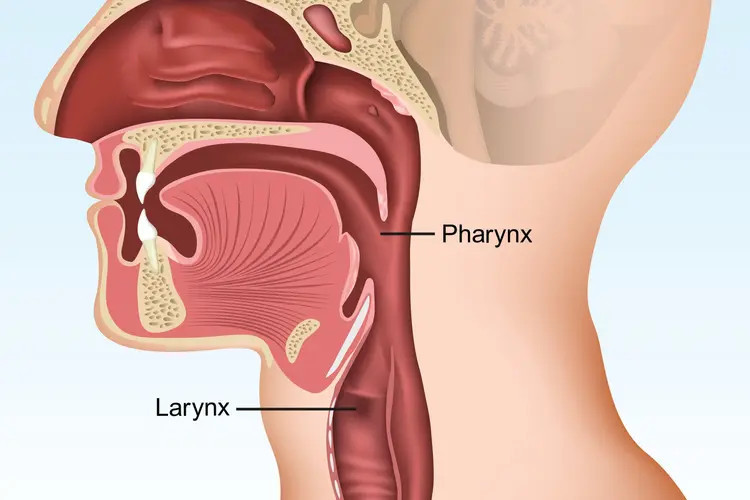views
When faced with a throat cancer diagnosis, timely and effective treatment is critical. Many international patients are increasingly turning to India for world-class throat cancer treatment that combines cutting-edge medical technology with affordability. However, planning a medical trip abroad can be overwhelming, especially when dealing with a serious condition like throat cancer. This guide will walk you through how to plan your medical trip for throat cancer treatment in India, covering everything from choosing the right hospital to managing travel, accommodation, and aftercare. By following these steps, you can focus on your health while ensuring a smooth, stress-free treatment journey.
Understanding Throat Cancer: Types and Treatment Options
Before diving into the logistics of your trip, it’s important to understand the types of throat cancer and common treatments available in India.
-
Types of Throat Cancer
-
Laryngeal Cancer: Affects the voice box.
-
Pharyngeal Cancer: Affects the pharynx, subdivided into nasopharynx, oropharynx, and hypopharynx.
-
Common Treatment Modalities in India
-
Surgery (partial or total laryngectomy, neck dissection)
-
Radiation therapy (advanced IMRT and IGRT techniques)
-
Chemotherapy
-
Targeted therapy and immunotherapy (for advanced cases)
India offers all these treatments in advanced cancer centers with experienced specialists.
Step 1: Research and Choose the Right Hospital and Doctor
Choosing the right hospital and specialist is the foundation of your treatment journey.
-
Accreditation and Reputation: Look for NABH or JCI-accredited hospitals with a dedicated oncology department specializing in head and neck cancers.
-
Doctor’s Expertise: Choose surgeons and oncologists who have extensive experience in treating throat cancer. Reading patient reviews and testimonials can help.
-
Technology and Facilities: Ensure the hospital offers modern treatments such as robotic surgery and advanced radiation therapy.
Some top hospitals in India for throat cancer include Tata Memorial Hospital (Mumbai), Rajiv Gandhi Cancer Institute (Delhi), Apollo Hospitals (multiple locations), and Max Super Specialty Hospitals (Delhi, Gurgaon).
Step 2: Obtain Medical Opinion and Cost Estimates
Once you shortlist hospitals:
-
Submit Medical Records Online: Most hospitals offer online portals where you can upload your medical reports for a preliminary evaluation.
-
Get a Treatment Plan and Cost Estimate: Request detailed treatment options, expected timelines, and a transparent cost estimate, including surgery, hospital stay, medication, and follow-up.
This helps you compare and decide based on your medical and financial needs.
Step 3: Apply for a Medical Visa
India offers medical visas for patients seeking treatment.
-
Documentation: You’ll need a letter from the hospital confirming your appointment, your medical records, and proof of funds for treatment.
-
Application Process: Apply online or at the nearest Indian embassy/consulate in your country. Processing time varies, so apply early.
-
Validity: Medical visas are usually valid for up to one year with multiple entries allowed.
Step 4: Plan Your Travel and Accommodation
-
Flight Booking: Book your flights to the city where your hospital is located (Delhi, Mumbai, Chennai, Hyderabad, etc.).
-
Local Transport: Arrange airport pickups with your hospital or medical facilitator to avoid stress upon arrival.
-
Accommodation Options: Many hospitals provide on-site or nearby guesthouses for international patients. Alternatively, there are serviced apartments, hotels, and short-term rentals at various price points.
Consider proximity to the hospital, comfort, and amenities when choosing accommodation.
Step 5: Arrive and Begin Treatment
Upon arrival:
-
Hospital Registration: Complete your registration and meet with your oncologist for an in-person evaluation.
-
Pre-Treatment Assessments: Additional tests such as PET scans, biopsies, or blood work may be conducted before treatment begins.
-
Treatment Schedule: Work with your medical team to understand your treatment schedule — surgery dates, radiation sessions, or chemotherapy cycles.
Step 6: Understand Aftercare and Follow-Up
Throat cancer treatment often requires ongoing care:
-
Post-Treatment Monitoring: Regular check-ups to monitor recovery and detect any recurrence.
-
Rehabilitation: Speech therapy, nutritional counseling, and psychological support may be part of your aftercare.
-
Managing Side Effects: Radiation and chemotherapy may cause side effects; hospitals provide support for managing these effectively.
Make sure to discuss aftercare plans with your doctor and schedule follow-up visits before you leave India.
Additional Tips for a Smooth Medical Trip
-
Hire a Medical Facilitator: Companies like Ortil Healthcare specialize in helping international patients manage hospital appointments, travel logistics, visa assistance, and accommodation. This reduces stress and streamlines your experience.
-
Keep Important Documents Ready: Carry your medical reports, passport, visa, insurance papers, and emergency contacts at all times.
-
Stay Connected: Have a local SIM card or international roaming to communicate easily with your medical team and family.
-
Financial Planning: Have funds readily available for treatment, travel, and unexpected expenses. Some hospitals accept international credit cards; others may require advance payments.
Why India Is a Preferred Destination for Throat Cancer Treatment
-
Affordable Treatment: Throat cancer treatment costs are significantly lower than in the US, UK, or other Western countries, sometimes up to 70% less.
-
High-Quality Medical Care: Indian hospitals have internationally trained doctors and advanced technology.
-
Multilingual Support: Many hospitals offer interpreters and support staff fluent in multiple languages.
-
Medical Tourism Infrastructure: Dedicated services to assist with travel, stay, and treatment coordination.
Conclusion
Planning a medical trip for throat cancer treatment in India involves careful research, preparation, and coordination. By selecting the right hospital, understanding treatment options and costs, managing visas and travel logistics, and preparing for aftercare, you can focus on your health and recovery with confidence. India’s combination of affordable, high-quality cancer care and comprehensive support makes it a leading destination for throat cancer patients worldwide.
If you’re considering throat cancer treatment in India, start your journey today by consulting with top hospitals and medical facilitators like Ortil Healthcare to make your treatment journey smooth and successful.




Comments
0 comment